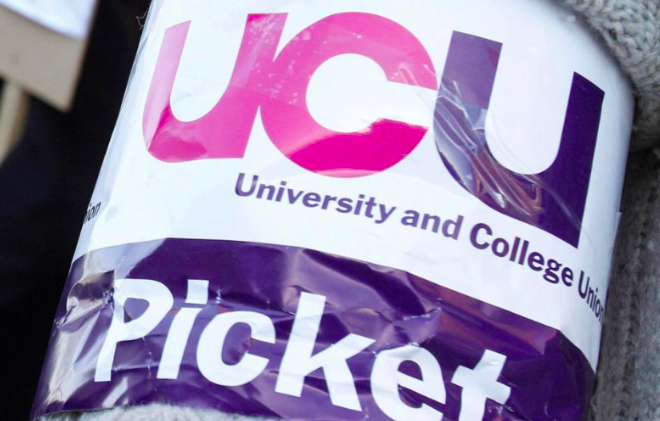Words by Ali Abdi
More than 70,000 staff at 150 UK universities are set to strike for 18 days over February and March, the University and Colleges Union (UCU) has announced, in what is set to be the largest round of strikes by higher education staff in British history.
The decision was taken by the union’s higher education committee (HEC) in an escalation of a dispute over pay, jobs and conditions. The ‘clock is ticking’ for university bosses to avoid significant and widespread disruption this year, say the UCU.
“Today our union came together to back an unprecedented programme of escalating strike action. The clock is now ticking for the sector to produce a deal or be hit with widespread disruption throughout spring,” said Jo Grady, UCU general secretary.
“University staff dedicate their lives to education and they want to get back to work, but that will only happen if university vice-chancellors use the vast wealth of the sector to address over a decade of falling pay, rampant insecure employment practices and devastating pension cuts. The choice is theirs.”
The UCU is also set to seek a fresh mandate by re-balloting staff to call strike action well into 2023 if the disputes aren’t settled, including a marking and assessment boycott from April.
The union is demanding a “meaningful” pay rise after a decade of below-inflation pay awards, and for an end to ‘insecure’ working contracts. The UCU says the pay offer of between 4% and 5% made by the Universities and Colleges Employers Association (UCEA), which represents university employers, is ‘not enough’.
In the pension dispute, the UCU is calling for a package of cuts introduced last year, which will see its average member lose over a third of their future retirement income to be reversed. “The losses are in the hundreds of thousands of pounds” for those at the beginning of their careers, says the UCU.
In the Autumn, the UCU held strikes over 3 days in November. At the time, UCU general secretary Jo Grady said: “Campuses across the UK are about to experience strike action on a scale never seen before. 70,000 staff will walk out and make clear they refuse to accept falling pay, cuts to pensions and insecure employment.
“This is not a dispute about affordability – it is about choices. Vice-chancellors are choosing to pay themselves hundreds of thousands of pounds while forcing our members on to low paid and insecure contracts that leave some using foodbanks. They choose to hold billions in surpluses whilst slashing staff pensions.
“UCU members do not want to strike but are doing so to save the sector and win dignity at work. This dispute has the mass support of students because they know their learning conditions are our members’ working conditions.
“If university vice-chancellors don’t get serious, our message is simple – this bout of strike action will be just the beginning.”
For students, it will mean yet more disruption to their studies after the last few years of learning have been blighted by Covid disruption and varying levels of strike action.
One final year undergraduate Sussex student, speaking on condition of anonymity, noted: “It’s a real shame that there is seemingly no end to strike action, both in the higher education sector and across multiple different industries. I’ve been a Sussex student for 4 years, and each year has seen worsening strikes with increased disruption for students. I urge the UCEA to find an immediate solution to the ongoing dispute in order to avoid unacceptable levels of disruption for students.”
“I support the strikes – I too would demand better pay and conditions at a time of double-digit inflation after years of falling real wages. In fact, the nationwide strikes which have taken hold across multiple sectors after decades of stagnant wage growth were easily foreseeable. Workers will only put up with rising levels of inequality for so long.”
Picture: Creative commons License

